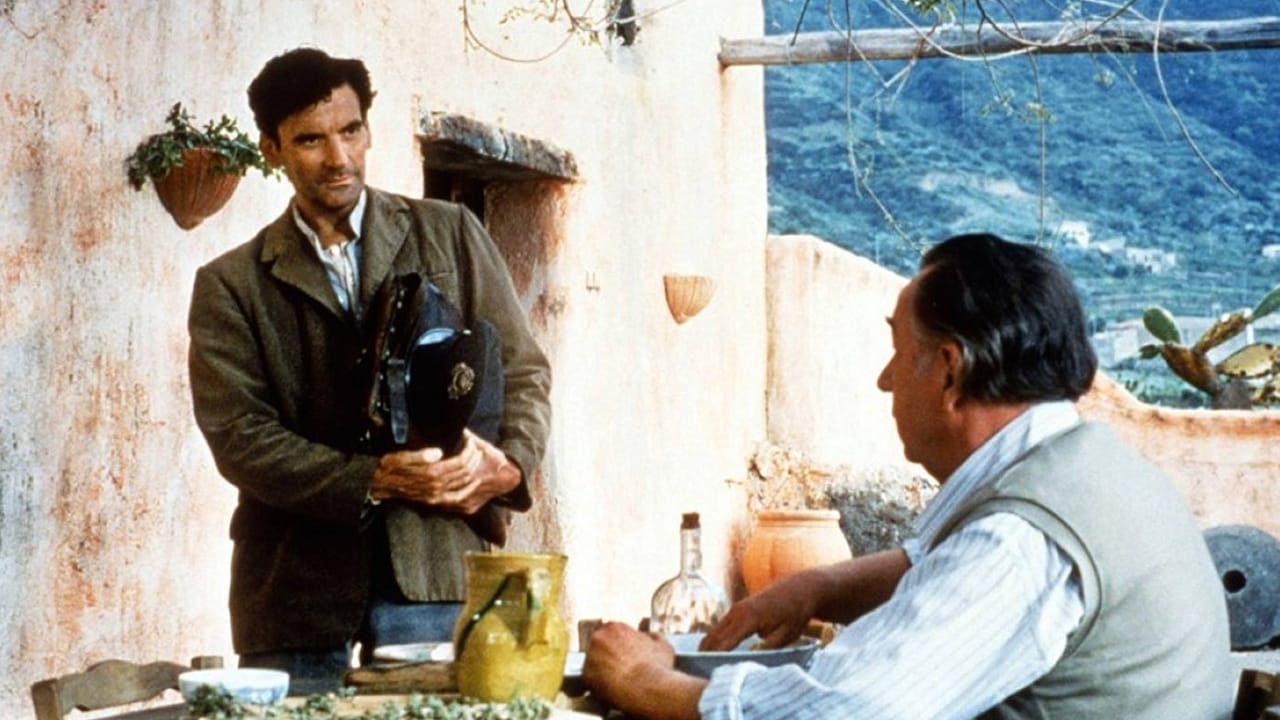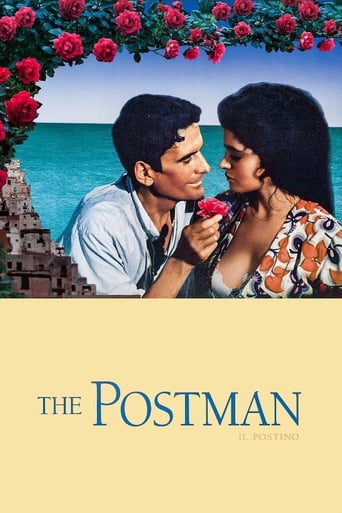

This movie is incredibly beautiful, wise and full of love and lyricism!
... View MoreI found this rather superficial and mundane. It's about the friendship between a worker – a postman - and a poet – Pablo Neruda. The poet awakens the young man's sensibilities and gives him the courage to pursue the village beauty. This is a tiny village - so why he had not realized her beauty before, and more so, why she was not being pursued by an entire flock of young men raised a question mark.The characters are all stereo-typed – the shy postman, the over-wordy poet and the village beauty with her raspy aunt. Everything was a caricature and the film suffered from a lack of passion, intensity I couldn't buy into it.
... View MoreWhat a gentle, unassuming movie. When Pablo Neruda arrives on the island, exiled from his native Chile due to his political beliefs, he is a mysterious figure. Women love his work and send him mail by the bushel basket. The principle character has the job of bringing the mail to the hinterland and eventually begins a relationship with the great poet. The postman is a very simple man who really should be ignored or tolerated by Neruda. Instead, the man who loves poetry instills that love in this man who mumbles and stumbles with his words. Eventually they find themselves discussing deeper issues and the Postman begins to realize an intellectual potential. There is a comment later in the movie about ignorant people. He would never have made such a comment early on because of his own self doubts. He at first sees poetry as a way to get girls but later comes to know that he is himself a poet. I loved the wonderful acting and the gentle yet powerful nature of this film.
... View MoreReading some of these IMDb user-comment reviews (and reviews at other sites), it seems a lot of people watched this film and wondered, "How in the world did this movie ever get nominated by the Academy Of Motion Pictures for 'Best Picture?'" Well, the answer is simple: it has pro-Communist themes in the film. That will automatically earn high praise from critics, especially since the so-called "McCarthy Era," something the Left still can't get over. The film business has always been heavily tilted to the secular way of looking at things, so Communism has always gotten high grades among the similar-thinking film critics. Look it up. Had this story had a couple of likable guys, as seen here in this movie, preaching against Communism, it never would have received the plaudits it did. That's a fact.Here, we have a Chilean poet, "Pablo Neruda" (Phillipe Noiret) who is the sympathetic lead character, a Communist in exile, now living in Italy. The local postman concurs with his political views, making them all sound wonderful. Meanwhile, the agenda is glossed over with a nice romance story and very pretty cinematography. Make no mistake: it's not a bad film, and it is gorgeous and genuinely sweet-natured in spots, a nice romance story.....but it's not "Best Picture" material. Thanks to all the critics who over-hyped this movie, many people expected too much and wound up disappointed. If you aren't the least bit politically inclined, you should enjoy this movie. It's a nice story.
... View More